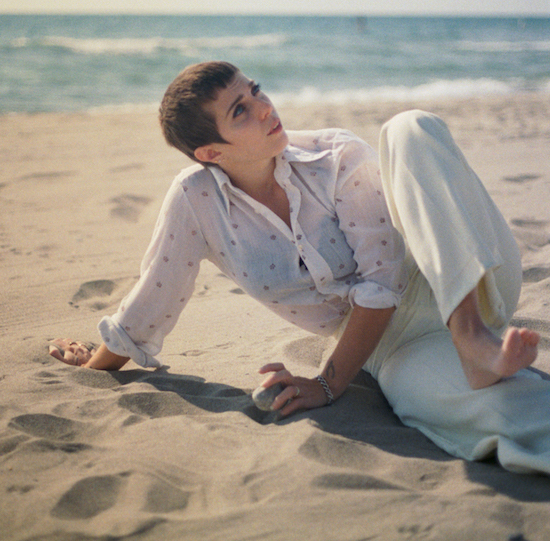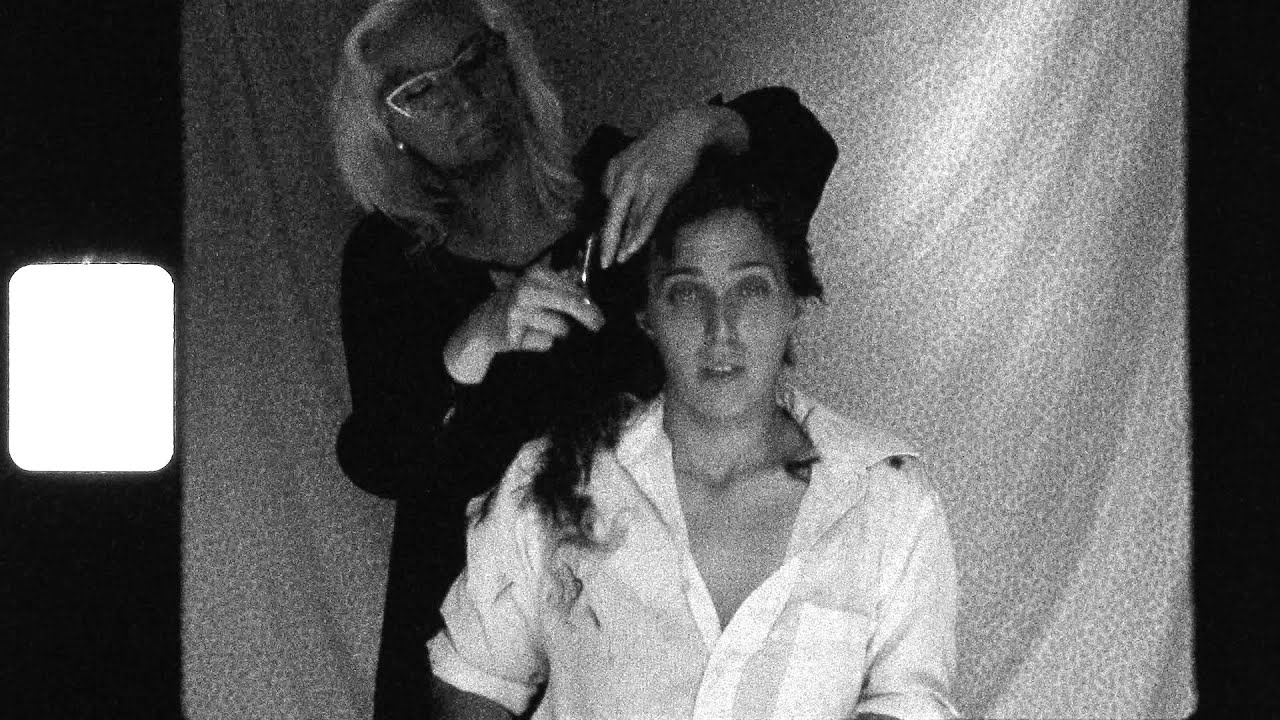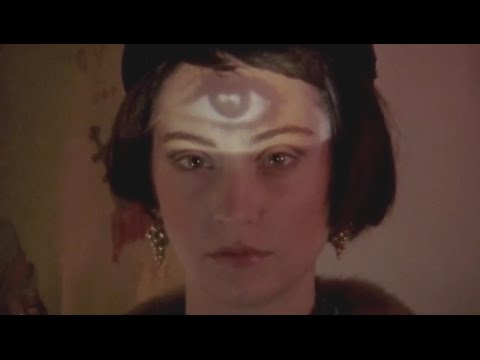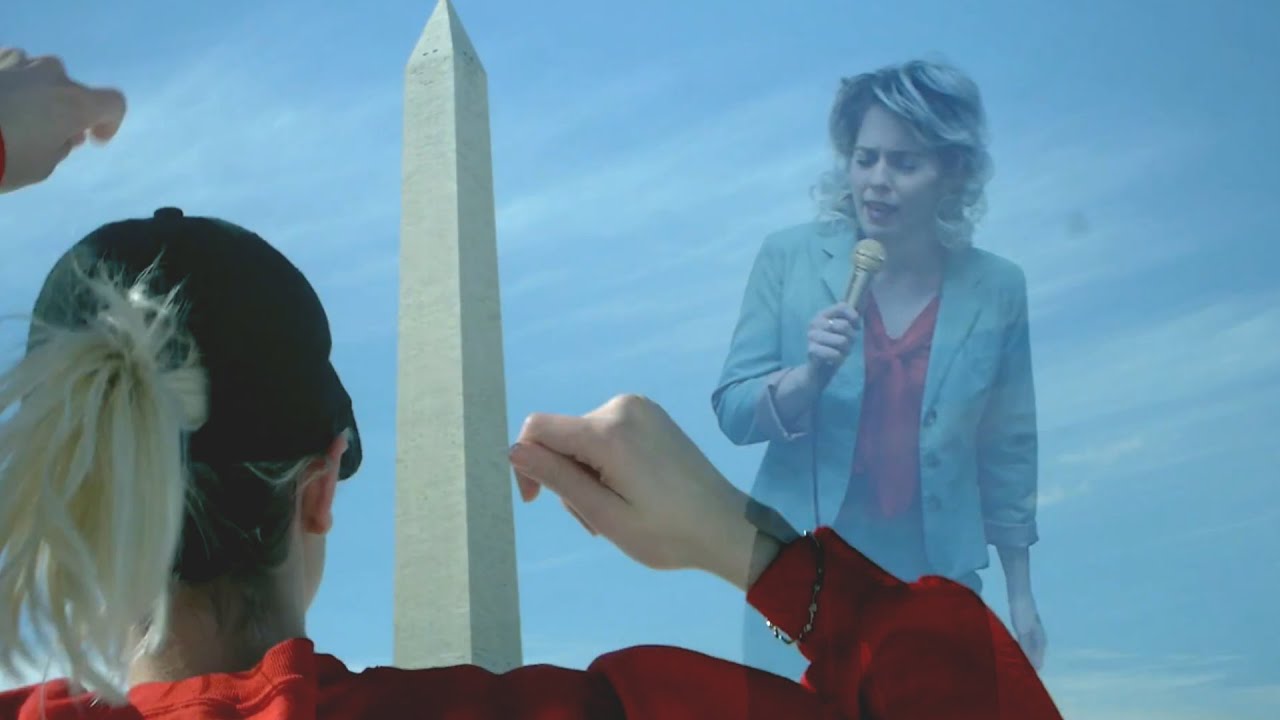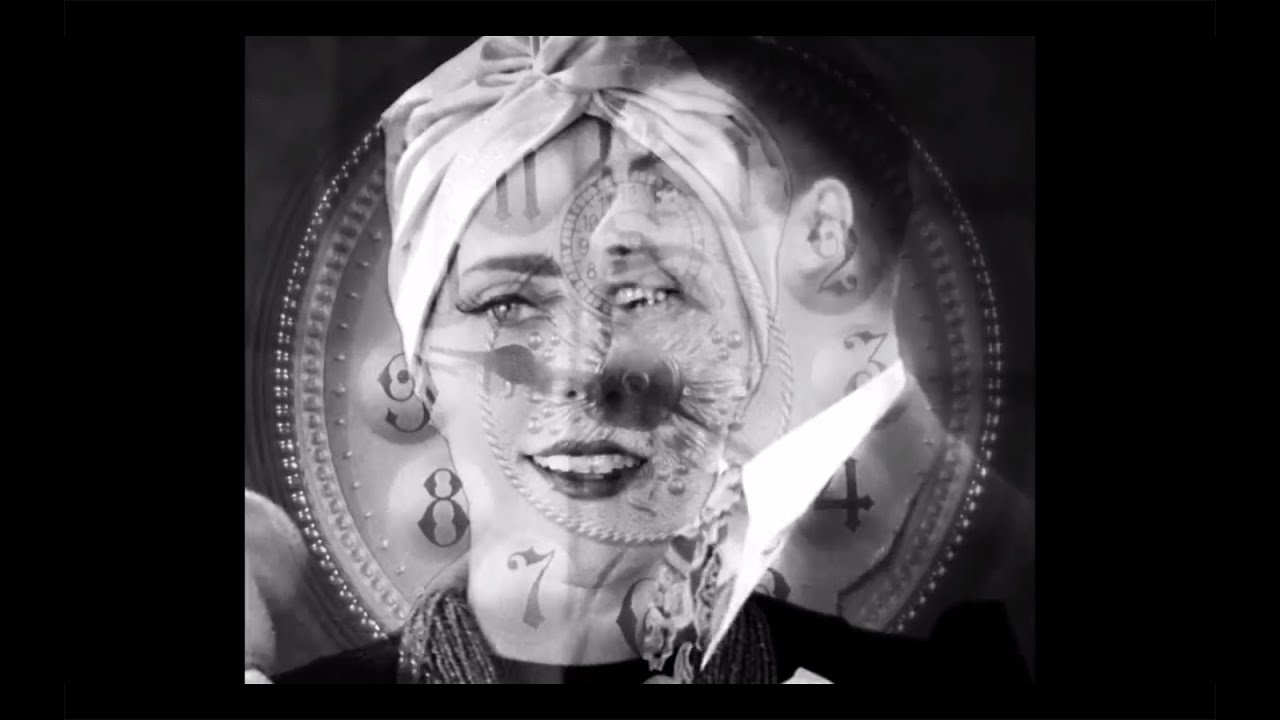Photograph courtesy of Colin Medley
For someone who doesn’t want to speak "in-depth", as Meg Remy says within moments of picking up the phone, it feels like she bares a lot. Either she is good at misdirection, or truly more comfortable with pronouncing her own feelings and opinions than I will ever understand. Her new album under the long-time moniker of U.S. Girls, Half Free, is a journey through her fears, desires, opinions and experiences via the medium of first-person tales, told by a variety of women of varying degrees of fictitiousness. And all of them bleed: from the character in ‘Woman’s Work’ that is addicted to plastic surgery, to the war widow in ‘Damn That Valley’ who cries the song’s title with her fists raised against the politics and geology that took her husband away.
Her work isn’t exactly in the canon of protest records, but Remy’s anachronistic sounding voice, along with the sepia-tone, lo-fi and disco-inflected rhythms of Half Free insist on giving the voiceless a song to sing. She provides a legitimate space for the banshee wail of women that won’t be hidden away.
It’s a record heavy with grief, despite the fact it clearly marks the birth of what will be a larger audience’s love affair with U.S. Girls. One can only speculate where this spectacular and spectacularly radio-friendly album, built on the back of collaborations with friends and her husband, will take her. Her intensity and forthrightness will prove prickly for many, which is probably a good thing. You get the feeling that nothing would upset Remy more than the idea that some may take her pop hooks at face value.
How does it feel to have Half Free out?
Meg Remy: It feels good. Time to start the next one.
You don’t give yourself a break?
MR: No, no mental pause. I have new things that I want to say.
Tell me about ‘Sororal Feelings’. The main refrain, "Hang myself from my family tree", is such a stark, terrifying opener. Why kick off the record with that?
MR: I wanted that to be the first song, mostly musically. It feels like the car is starting. But I also like the idea of making a bold statement right off the bat. I don’t think the music I make is for everyone and I don’t think my attitude and the way I carry myself is for everyone.
Do your songs mirror how you carry yourself?
MR: Definitely. I think if you don’t like my music you probably wouldn’t like me as a person very much. There’s not really a separation… And although I do write from other people’s perspectives, it’s really me.
Why do you use the first person to tell these stories?
MR: I’m just interested in that way of writing. I’m not a very abstract person, I’m direct. And there’s nothing more direct than a first-person account of something.
What’s the furthest from yourself you’ve written as? Is there a story you’ve placed yourself in that feels beyond your experience?
MR: I think the character in ‘Woman’s Work’. She’s a woman who is addicted to plastic surgery and has had too much. Part of her reason for doing that is a fear of death. I don’t feel very connected to that character. I don’t fear death at all. My own death doesn’t scare me, and I’m not running away from it. I accept death.
Do you feel like you know that girl, or is she more of a societal collage?
MR: I think it’s a societal thing. It’s really shocking to me the way that airbrushing is starting to be mimicked in reality. It’s very sci-fi, like a Philip K. Dick story. And you see some who don’t look like human beings – like weird cat people or something.
Do you have a favourite of your semi-fictional women?
MR: I think the character that is the most well-formed is the woman in ‘Sororal Feelings’ – possibly because she’s based on a character from a book by Michael Ondaatje called Coming Through Slaughter. Her name is Nora Bass and she’s barely in the book, just a couple of paragraphs really. Yet her story struck something within me and it made me want to write something more vivid.
Are you attracted to the idea of writing a story for someone who may have been discounted elsewhere then?
MR: I like the idea of covering people that don’t get written about and using words that aren’t used in songs usually. Like throwing a word like ‘sororal’ in and making it catchy and singable. I like that challenge.
What stories do you think don’t need to be told? What is dealt with enough in music?
MR: Money. The flaunting of money. The glorification of violence. I don’t know if I’d ever use the word bitch in a song.
What changes in your process have been the catalyst for your evolving sound?
MR: I used to do everything on my own and that’s why it sounded the way it did – not very good. Well, not not very good. But it was just limited to my skillset. And deciding to work with others – that changed everything. It’s why I get to work with 4AD now.
Is it scarier to let people in or remain on your own?
MR: The only part that was hard about it was recording vocals in front of people. I know it sounds funny because I sing live all the time. But live is live. You do it and someone experiences it and they leave… When you go to record vocals it’s very embarrassing. But it was a good challenge.
What’s your perception of your voice and your tone? I feel like you sing from the past.
MR: My favourite singer is Ronnie Spector from The Ronettes. I think that’s a voice that I’ve been trying to mimic since I was a child. But I have a complex relationship with my voice. I think it’s unique, but I don’t think it’s particularly ‘good’ – I can’t harmonise and I’m often out of tune. I think more where I feel confident is that I have something to say.
You’re obviously very aware of using your image in conjunction with your art. With Gem, the cover was very glam, and on this record the image is also very striking. I’ve seen you’ve cut your hair – do you think that people viewing your new severity will think differently about your work and performance?
MR: Yeah. I mean on Gem, the cover’s not me actually.
Oh, what? Really?
MR: That’s my sister-in-law. A lot of people think it’s me though, which is what’s great about it. I think that is such a success.
I just thought you’d changed your appearance for it.
MR: I know, it’s really funny. I took the picture and I styled it and that’s exactly how I wanted it to look. But it’s funny how people just assume things. Because it’s a woman on the cover. Or U.S. Girls – they assume it’s multiple people instead of one person. I think it’s natural for people to assume. So I think that’s why I chose with this record to put myself on the cover in a very raw way. There’s not much you can assume about that photo. It’s just there and I’m not hiding behind anything. I figured this was going to be my first introduction to a lot of people. People think it’s my debut release because it’s on a bigger label and it’s the first they’ve heard of it. But I wanted to start at the ground level with people.
With the cutting of the hair thing? I did it mostly for convenience. I like the idea, too, of you seeing the picture of me on the cover and then you come to the show fully expecting that that’s what you’re going to see on stage, instead of thinking this is maybe a living person that’s maybe going to cut their hair or change the way they look. We want people to stay how we think they look. That’s kind of with music as well. You have a hit with a record and when your next record is different, people don’t like that. It’s really inconvenient for them to have to do some thinking.
Do you fear the trappings of a 4AD release?
MR: No. I don’t fear any of that stuff because I’m planning on making many, many more records after this and making lots of art and having a body of work as large as my life is.
How do you feel a global listener would interact with the Americana elements of your work?
MR: I mean I can’t really say. Although I’m making this music for public consumption, it’s really for me. I moved to Canada five years ago, and I feel like that I’m only now starting to dissect and sort through what it meant to grow up in the States, how it shaped me good and bad, and how that place is now. And although I think it is speaking of the American experience, I think it’s pretty universal.
Do you miss the US?
MR: No, I visit there enough. And when I’m reading in the news how the Republican party has tried to defund Planned Parenthood and I’m looking at the election that’s unfolding… I do not miss that. It’s a place that has such great qualities. A corrupt system that creates a huge lack of security for people – it makes people very resilient and kind of scrappy. I appreciate that. But it makes me very sad too, and it often makes me ashamed.
Many musicians from the States use the word shame a lot.
MR: I think there’s almost something that’s been put in place in the States to ensure people feel shame and hold the blame for things because they’re voting. Whereas really the voting process is completely fucked up and the people in power just do whatever the hell they want. Until we start looking at each other as all humans outside of countries or religion or gender or anything, nothing’s going to change.
Are you hopeful?
MR: I don’t know. I want to be. I want to be hopeful because I want to bring children into a world that has hope. Though I also feel like none of this really matters. Reality is very strange. I think we don’t really know what reality is. I think there could be multiple realities existing always, at the same time. We are literally a speck. We are nothing when you look at space, and all of the stars. Oh god; so many stars. We take it very seriously because it’s all we know, but we’re nothing compared to nature. Nature is going to win in the end.
Do any of your songs deal with your feelings about nature and the earth?
MR: No. I mean I think about it and I feel it. The female condition is synonymous with what’s going on with the earth, you know? It’s the same thing. The way women are treated around the world is very similar to how the the world is being basically raped.
Would you make albums if you didn’t have to?
MR: Well, god, if I could make whatever I’d probably be making a play or something.
Why don’t you write a play?
MR: I think I will. I wrote the skit [‘Telephone Play No.1’] for the record. I read a book that was about theatre and how it’s been around for so long and how it’s an art form that’s really ripe for experimentation. I don’t see myself as a musician, I see myself as a person who’s interested in living an artful, interesting life. And I don’t want to belong to one medium, I think my life is the medium.
Do you find inspiration across mediums and formats then? Visual artists, for instance?
MR: Janet Cardiff is a Canadian artist who I think is just absolutely incredible. I’m inspired by tons of photographers. And then there’s things that inspire me that are just occurrences. There’s a girl who was working as a page for parliament, and she protested one day, sneaking a sign saying "Stop Harper!" in and holding it up while the prime minister was speaking. She [activist Brigette DePape] got escorted out and fired from her job. But that was like, holy shit! All right, someone’s doing something with their time. That was a very inspiring moment for me.
Acts of kindness, I think, are really inspiring, as corny as that sounds. And seeing babies; holding babies. That new life, when they haven’t really experienced much yet. Sometimes you can just be inspired by a good meal. Someone is an artist when they’re cooking. Equally, there’s the negative things in the world that inspire me. All the injustice and capitalism and wars and Hollywood bullshit… all that negative stuff is inspiring to me, and inspires me to live my life in a different way and to speak out against it.
Do you get angry?
MR: Yeah. I get so angry. That’s my default, almost. I’m beyond angry. I’m in mourning. But it’s good to feel. If you’re feeling it you’re thinking; you’re paying attention.
Do you worry about not paying attention?
MR: Yeah, and I do. I can focus on the wrong things. I’ve struggled in my life big time with my physical appearance. I have body dysmorphia, hugely. And there’s times when I feel like I can’t leave the house because I don’t like the way I look. That’s against everything I’m for, and yet I can fall for it and it can overwhelm me. I can also get wrapped up in my own thoughts. I lose sight of things and forget that none of it is really that serious.
Are you serious on stage?
MR: I wouldn’t say we necessarily put on an entertaining show. I don’t think people should be coming who want to be entertained. I think it’s an interesting show and it’s a unique show. If anything, we have an intensity that’s worth seeing live.
I would be disappointed if there wasn’t an intensity.
MR: I think it can be too intense. I often get asked: "Why are you so mad?" And I’m like: "I am mad." I’m pissed. It’s not entertainment. I’m not there to give people a good time. It’s challenging every time to get up and there do my thing, struggling with self-consciousness and self-doubt, and dealing with some shitty sound guy who’s in a bad mood or a whole bunch of people on their phones.
Do you want people to be uncomfortable?
MR: I almost would prefer people to have an uncomfortable, unsure reaction to it. I find the confusion more valuable. I guess because I really loved Suicide when I was younger. I really find them endlessly inspiring and I guess I’m just trying to copy them.
Half Free is out now on 4AD. U.S. Girls continues her tour of Canada and the US at La Vitrola, Montreal on November 12; for full details and tickets, head here

